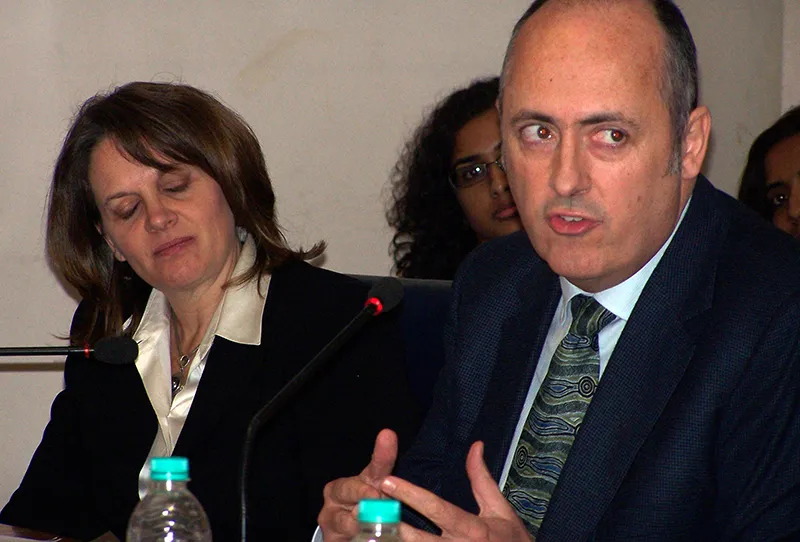Pakistan will face severe consequences if they do not change their policies in dealing with terror networks, said Dr. Lisa Curtis during a talk on "US Policy Options in Pakistan" on October 13, 2011 at Observer Research Foundation.

Pakistan will face severe consequences if they do not change their policies in dealing with terror networks, said Dr. Lisa Curtis during a talk on "US Policy Options in Pakistan" on October 13, 2011 at Observer Research Foundation. Dr. Curtis is a Senior Research Fellow at the Heritage Foundation where she analyses America’s economic, security and political relationships with India, Pakistan, Afghanistan and other nations of South Asia.
She believed that U.S policies to suspend aid and using it as a weapon to pressurise Pakistan were in the right direction. In the last one year, U.S made major successes in the ’war on terror’ with the elimination of Osama Bin Laden, Atiyah Abd al-Rahman, Anwar al-Awlaki and Samir Khan who were killed in Pakistan and Yemen. This she attributed to increased intelligence cooperation with Pakistan. However, she also said that some of the actions were unilateral. She said that Admiral Mullen’s comment about how the Haqqani insurgent group was a veritable arm of Pakistan intelligence reflected the frustration level of top U.S officials. Her understanding was that senior U.S officials agreed with the statements made by Admiral Mullen but the cooling off period that one witnesses is mostly because these officials simply did not have an alternative option on the table when it came to following up with such tough statements.
The present hostility between the two countries was essentially related to the continued support Pakistan was providing the Haqqani network. She also mentioned that the U.S embassy attack n Kabul where U.S civilian interest was harmed for the first time was one of the other reasons for tough stance. Various tactics are being used to pressurise Pakistan to change its policies and that includes the suspension of security aid to the military. However, Dr. Curtis said that both the military and civilian aid was tied, i.e. with the breakdown of relations with the military it seems unlikely that civilian aid would continue to flow.
The other way is to declassify more information about the links of the Pakistani intelligence to terrorist networks so as to increase the global isolation. She mentioned that alternative routes need to be looked into for re-supplying U.S troops in Afghanistan. She also said that a sudden withdrawal of troops in 2014 is not advisable as it would play into the hands of the terrorist groups.
Various concerns were also raised during the discussions regarding the U.S seeing the Pakistani Army as the only fall back option and how by only dealing with the army, the U.S was spoiling the chances of a strong civilian government from emerging. It was also pointed out in the discussion that the only force that can challenge the army was the Pakistani people themselves. The Pakistan army on the other hand cares a lot about its image and reputation. And therefore the society was seen as the key to counter the army’s overpowering influence in Pakistan.
The report was prepared by Aarya Venugopal, Research Intern,ORF
The views expressed above belong to the author(s). ORF research and analyses now available on Telegram! Click here to access our curated content — blogs, longforms and interviews.




 PREV
PREV

